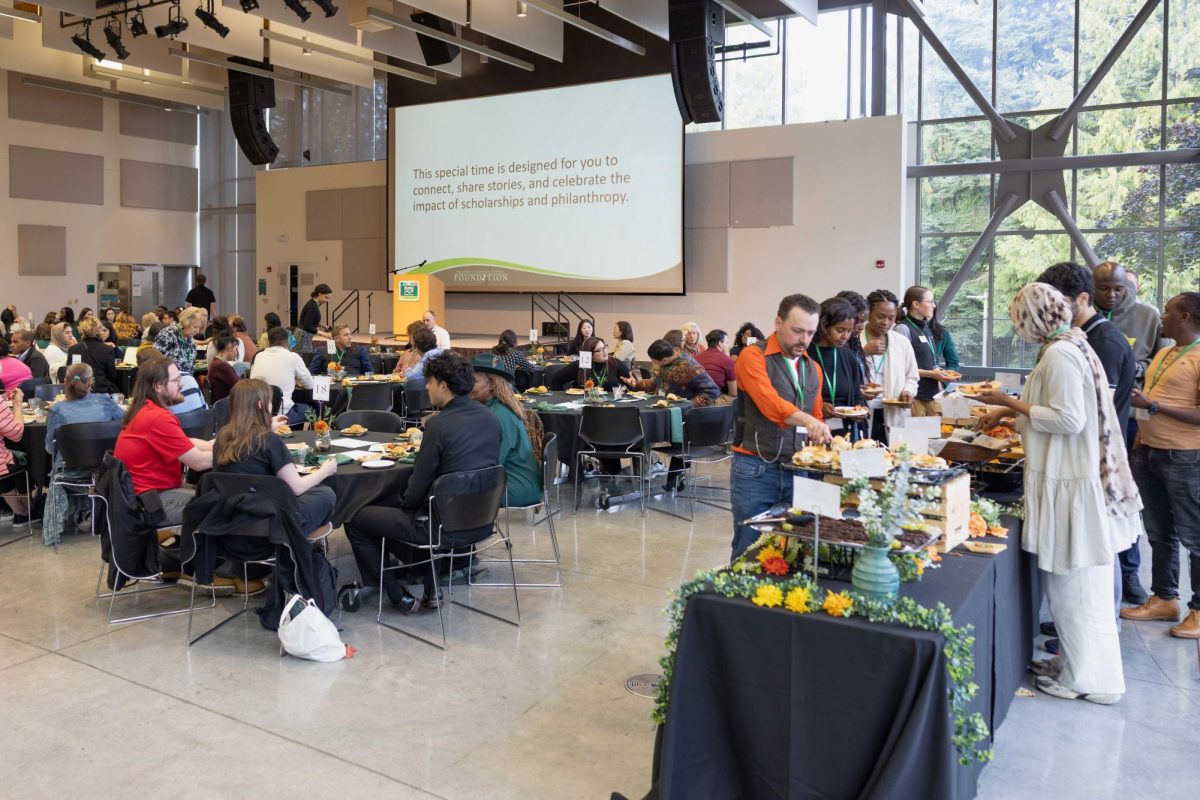SCC’s Hunger and Homelessness Awareness Week: Days 2 and 3
December 13, 2021
From Nov. 17-19, the Associated Student Government partnered with Student Life and the Benefits Hub to curate three virtual events dedicated to raising awareness for Seattleites suffering from housing displacement.
Days two and three utilized activities and information sessions to shed light on housing stability and local resources.
Simulation Activity
On the second day, ASG Governmental Affairs Officer Samira Jimaale led a simulation event over Zoom.
The activity saw students placed into groups of different economic backgrounds ranging from poverty to upper middle class. In these cohorts, participants were faced with scenarios that challenged their financial needs, housing security and food stability.
In one scenario, a pandemic forced friends and family out of work and caused neighbors to seek refuge in the homes of others. Participants were faced with the choice of housing their friends and neighbors or keeping their doors closed.
In another dilemma, the participant was homeless on the street with their pet dog. A flood resulted in shelters becoming overcrowded, leaving the choice of a $30 motel stay or a meal.
The latter situation offered a renewed sense of perspective for those who face the decision between food and shelter on a daily basis.
Resource Information Session
The final day was dedicated to a homelessness resource information session. The event was intended to educate students, faculty and staff about the programs available for those in need of housing assistance.
Support Coach Kay Hashimoto advised students facing housing insecurity to reach out to the Benefits Hub, where coaches can aid in accessing help from both SCC and outside organizations.
Such outside organizations include the YMCA, Seattle-based nonprofit Neighborhood House and the Washington State Department of Social and Health Services.
Neighborhood House has a 115-year history of “supporting low-income community members, public housing residents, immigrants and refugees” in Washington, according to the nonprofit’s website.
During the session, Neighborhood House Housing and Stability Case Manager Elizabeth Steelye highlighted the organization’s rapid rehousing program, where families and individuals are connected with case managers who work “intensively” with families to exit homelessness.
Additionally, Steelye explained how financial coaching provided by the nonprofit can help individuals pay back rent and utilities while developing a plan toward financial independence.
Steelye also emphasized the value of day and night shelters in accessing warm meals, case managers and hygiene facilities and recommended getting in touch with the St. Vincent de Paul Society for further assistance.
The session concluded by referencing King County’s 211 hotline as another helpful resource. The hotline “provides the most comprehensive information on health and human services in King County,” according to the Crisis Connections website.







